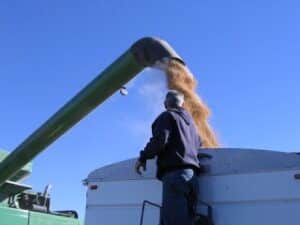UMN Extension’s “Strategic Farming: Let’s Talk Crops!” highlights Targeted Spray Technology
Are you curious about advances in targeted spray technology or wondering if this system could work for you and actually lead to cost savings? These questions and more were highlighted during a recent UMN Extension “Strategic Farming: Let’s Talk Crops!” program. Dr. Rodrigo Werle, weed scientist with the University of Wisconsin- Madison, joined moderator Ryan […]



